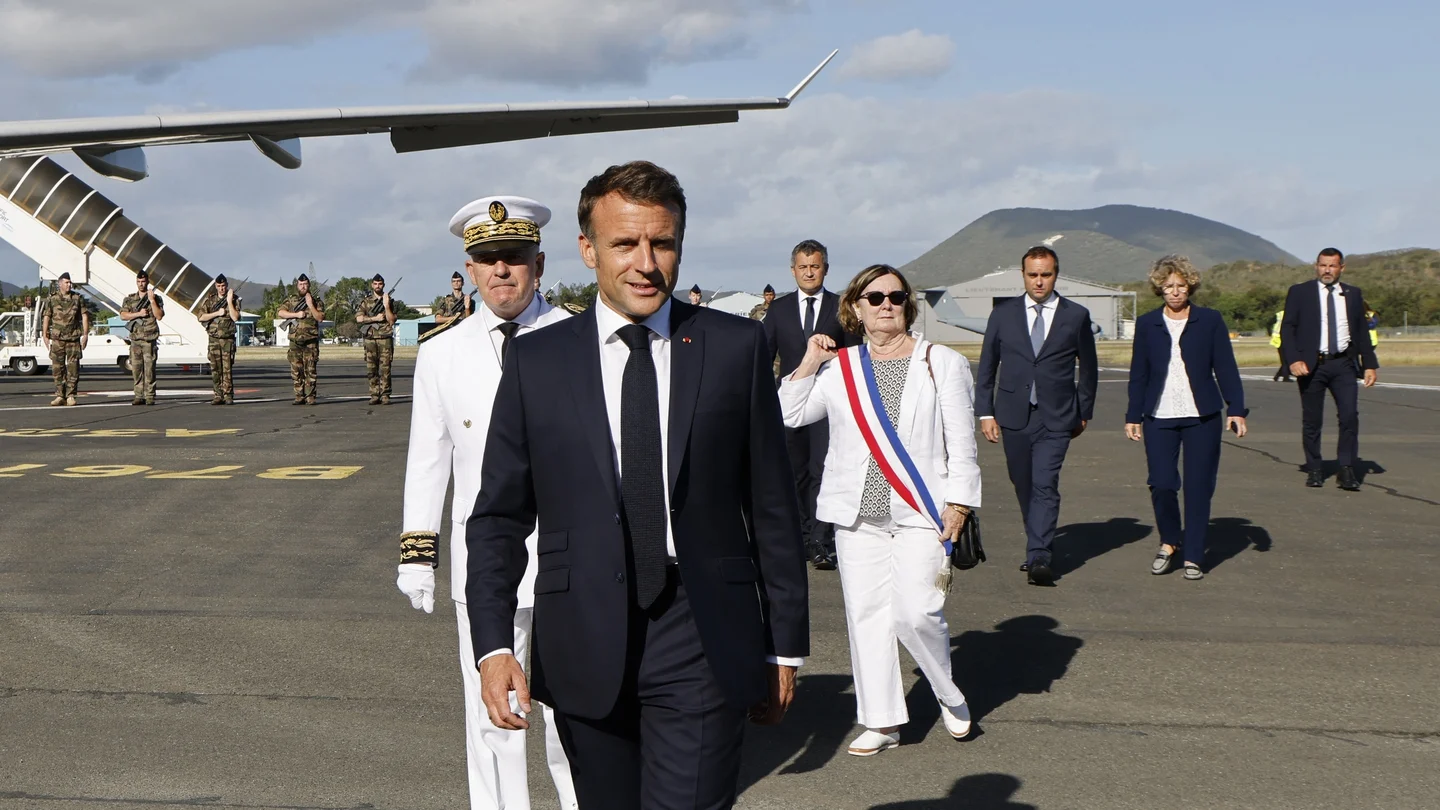President Emmanuel Macron on Wednesday flew to France’s Pacific territory of New Caledonia on a politically risky visit aiming to defuse a crisis after nine days of riots that have killed six people and injured hundreds.
Macron’s sudden decision to fly to the southwest Pacific archipelago, some 10,500 miles from mainland France, is a sign of the gravity with which the government views the separatist strife.
New Caledonia, colonised in the second half of the 19th century, and other overseas territories spanning the globe are considered an integral part of France.
But there have long been tensions between the Paris government and pro-independence voices among New Caledonia’s indigenous Kanak population.
France has also been concerned about foreign interference in the crisis — accusing Azerbaijan of stirring trouble. New Caledonia’s government said an internet provider for the territory had suffered an “unprecedented” cyberattack.
Macron is expected to spend about 12 hours on the ground after upturning his programme for the rest of the week just ahead of June’s European elections.
He last visited New Caledonia on a trip boycotted by Kanak representatives in July 2023.
“It’s double or quits. It’s a bet,” said a presidential advisor, asking not to be named, while a lawmaker descried the trip as a “poker move.”
Such was the last minute nature of the voyage, a schedule for Macron was being drawn up during the 24-hour flight, without knowing who would be willing to meet him.
“This is absolute improvisation,” said a source close to Macron.
Macron will be accompanied by Overseas and Interior Minister Gérald Darmanin and Armed Forces Minister Sébastien Locornu. But both ministers bear heavy responsibility for the current crisis.
“The trio responsible for the uprising. Turning deaf ears to our call for peaceful talks since they bulldosed through the 2021 referendum and now the electoral bill. Not to be trusted anymore!” said Jimmy Naouna from the Kanak and Socialist National Liberation Front(FLNKS) in a post on social media platform X.
The deadliest unrest in four decades was sparked by French plans to give voting rights to thousands of non-indigenous residents, which Kanaks say will dilute their votes.
French authorities sent more than 1,000 troops, police and other security reinforcements in a bid to quell the violence. But unrest has continued, though not on the scale of the early days.
A popular holiday destination, New Caledonia is now strewn with burned out vehicles, stores, businesses and schools.
Two primary schools and 300 cars in a dealership were torched in the territory’s capital Noumea during the night, the mayor’s office told AFP.
Police have arrested more than 280 “rioters” in the unrest gripping the French territory of 270,000, authorities said.
Kanak separatists, some masked and wielding homemade catapults, manned makeshift roadblocks including on the main route to the international airport, AFP correspondents said.
Armed locals, of French and other origins, have set up their own neighborhood barricades.
“I don’t know why our fate is being discussed by people who don’t even live here,” said 52-year-old Mike, a Kanak who gave only his first name, at an unofficial roadblock north of the capital Noumea.
The voice of local Kanaks “is not being listened to,” he said.
New Caledonia’s government said telecoms services had managed to stop an “unprecedented” mass email cyber-attack on an internet provider for the territory.
“Millions of emails were sent simultaneously to an email address whose purpose was to saturate” the network and render it inoperative, government member Christopher Gyges told reporters.
Trapped tourists have begun to flee.
Australia and New Zealand sent military planes to Noumea’s small Magenta airport on Tuesday to repatriate about 100 people.
Further flights will be organized until the main La Tontouta International Airport reopens to commercial flights, which the operator expects on Saturday.
Many Kanaks, who make up about 40 percent of the population, oppose the plan to extend voting rights to those who have lived in the territory for at least 10 years.
But anti-independence representatives want it pushed through.
One option open to Macron on his visit would be to delay the voting rights bill, which has been approved by the lower house but still needs to be ratified by a congress of both French houses of parliament.
“The situation is terribly sad and dangerous,” former French Prime Minister Edouard Philippe said Tuesday.
“France, which has a complicated relationship with its colonial history, has an opportunity to find an original solution,” he said.













